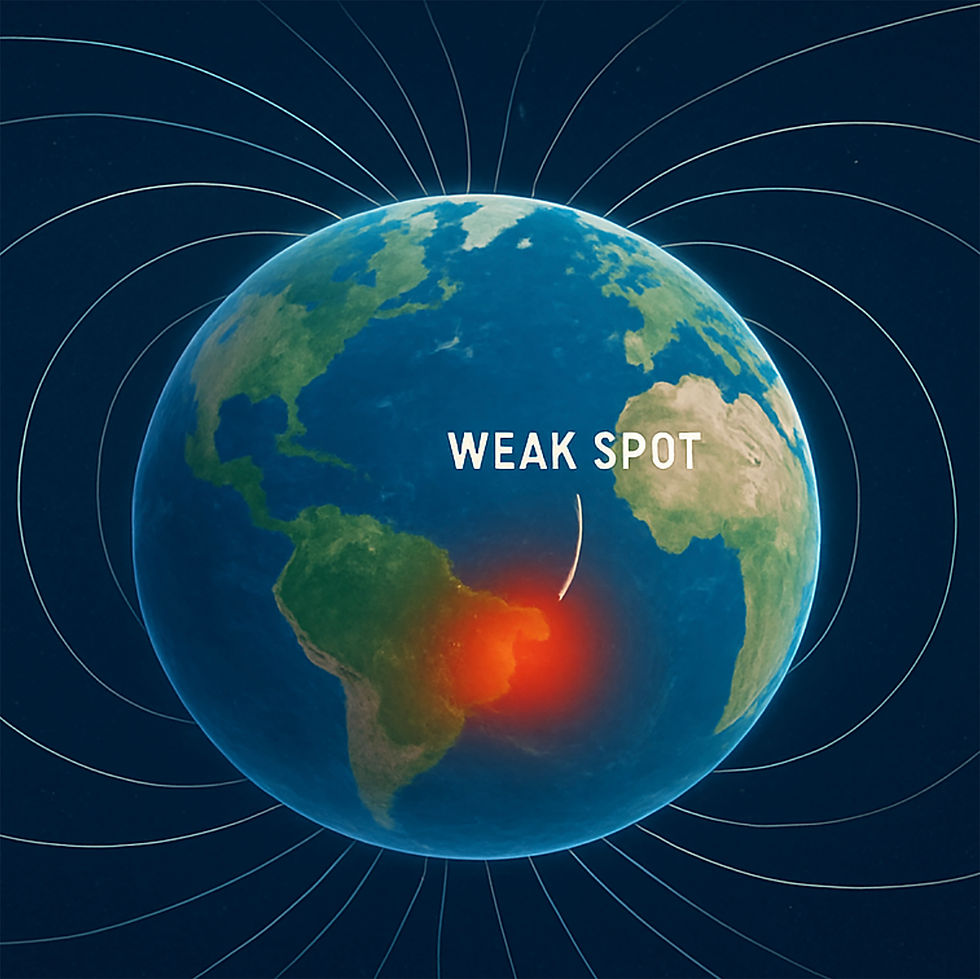Silent Collapse: The Global Coral Crisis (#312)
- Rick LeCouteur
- Apr 27, 2025
- 3 min read

Imagine a forest suddenly turning gray, its vibrant life vanishing without a sound. That’s exactly what’s happening beneath the waves around the world right now.
The worst coral bleaching event ever recorded is devastating reefs across the tropics and beyond, and scientists are sounding the alarm.
More than 80 percent of the world’s coral reefs have already been exposed to bleaching-level heat in what is shaping up to be a historic, global crisis.
Coral reefs, often called the rainforests of the sea, are not just dazzling spectacles of color and life. They are essential ecosystems that support 25% of all marine species, even though they cover less than 1% of the ocean floor. They protect coastlines from erosion and storms, fuel local economies through tourism and fishing, and are intricate hubs of biodiversity.
But as the planet warms, oceans are heating up too.
And corals are reaching a dangerous tipping point.
When exposed to prolonged heat stress, corals expel the symbiotic algae that live within their tissues. Without these algae, corals lose not only their brilliant colors but also their primary source of nutrition. What’s left is a ghostly white skeleton, vulnerable to disease, starvation, and eventual death.
A bleaching event is heartbreakingly described by scientists as a silent snowfall, an eerie stillness descends over reefs once teeming with life, replacing vibrant colors and bustling fish with a pale, ashen quiet.
A Global Crisis
Since 2023, mass bleaching has been confirmed throughout the tropics:
In Florida, the iconic reefs of the Florida Keys suffered 100% coral bleaching due to unprecedented ocean heat.
Australia’s Great Barrier Reef, the largest reef system on Earth, faced another catastrophic bleaching in early 2024.
Reefs in the Persian Gulf, the Caribbean, and the Red Sea have also been heavily impacted.
Until now, the worst bleaching event was from 2014 to 2017, when about 70% of reefs were exposed to bleaching-level heat. Earlier mass events occurred in 1998 and 2010.
But today’s bleaching surpasses them all.
And the crisis is still unfolding.
The most frightening part? Scientists don’t know when, or if, this event will end.
The underlying cause, rising ocean temperatures from human-driven climate change, isn’t showing signs of reversing. Some experts fear we may never again see ocean temperatures cool enough to prevent widespread bleaching.
Uncharted Waters
This latest mass bleaching event is not just a tragedy for corals. It’s reshaping the fabric of our oceans, with consequences for marine life, human communities, and global biodiversity.
Yet amid the grim news, there remains a glimmer of hope: Corals are survivors.
The ancestors of modern corals withstood the asteroid impact that wiped out the dinosaurs. If given the chance and if ocean temperatures stabilize, today’s corals could recover too.
Coral reef recovery is not automatic.
It demands urgent global action to slow climate change.
Scientists stress the need for:
Reducing greenhouse gas emissions.
Investing heavily in clean energy.
Phasing out fossil fuels.
Strengthening protections for vulnerable ecosystems.
World leaders have a critical role to play. Yet, some policies are moving in the wrong direction. For example, the current US administration's moves to boost fossil fuel production and roll back clean energy initiatives alarm researchers, who warn that stripping environmental protections will only hasten the decline of reefs.
The collapse of coral reefs is not a faraway problem.
It’s a stark warning that the Earth’s life support systems are breaking down.
Rick’s Commentary
Each of us can be part of the solution:
Support leaders and policies committed to fighting climate change.
Reduce our carbon footprint through everyday choices, from energy use to transportation.
Raise awareness about the plight of coral reefs.
Support organizations working to protect and restore reefs.
If we act boldly and swiftly, we may yet witness one of the greatest comeback stories on Earth: the revival of our planet’s rainforests of the sea.
Time is running out. Act now.
Sources
Current Global Bleaching: Status Update & Data Submission. https://www.coralreefwatch.noaa.gov/satellite/research/coral_bleaching_report.php
The World’s Fourth Mass Coral Bleaching Event Is Underway—and It Could Become the Worst One Yet. https://www.smithsonianmag.com/smart-news/the-worlds-fourth-mass-coral-bleaching-event-is-underway-and-it-could-become-the-worst-one-yet-180984164/?itm_source=related-content&itm_medium=parsely-api



Comments